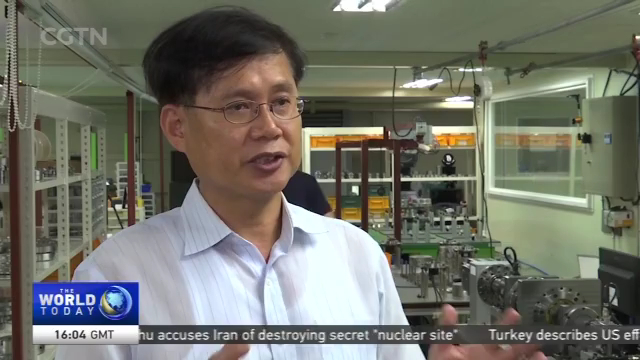
12:10, 11-Sep-2019
S. Korea-Japan Trade Row: Dispute harming businesses in both countries
Updated
14:18, 11-Sep-2019

As the trade dispute intensifies between South Korea and Japan, concern is growing among businesses in both countries. With no end in sight, some South Korean companies hope the crisis might lead to opportunities. Shane Hahm reports.
This factory produces ball bearings and other precision components used in industrial machinery and robots. But so far, business has been difficult trying to compete with products from Japan. Customers have been inclined to source more high-quality yet expensive Japanese imports. But ever since Japan removed South Korea from its so-called trade "whitelist" of preferred nations, business has been on the rise.
RYU JAE-WAN CEO, SBB TECH "In the past, customers were very picky and demanded higher quality on par with Japanese products and lower costs. That made it extremely difficult to supply our clients. Thankfully, we now have the opportunity to enter the market with an alternative product."
The South Korean government is doing all it can to help local businesses. President Moon Jae-in has come out strongly against Japan for its export restrictions. His administration retaliating by removing Japan from its own trading "whitelist."
"With crisis comes opportunity. That's why the South Korean government wants to use this opportunity to nurture and develop local parts suppliers. In fact, President Moon has promised to invest nearly 6.5 billion dollars in research and development for parts, materials, and equipment over the next seven years to rely less on Japanese imports."
RYU JAE-WAN CEO, SBB TECH "Any development related to the functionality of our products is complete. But to take the next step into mass production and standardizing that production, we need to invest in things like automation. But we have to do it without guaranteed demand."
South Korea's semiconductor industry was the first victim in this latest trade dispute with Japan. Tokyo restricting the export of three high-tech materials used to make memory chips in the interest of national security. Experts say companies and industries will inevitably adapt and adjust, but not without any negative impact on South Korea's economy.
PROFESSOR YANG JUN-SOK ECONOMICS DEPARTMENT, CATHOLIC UNIVERSITY OF KOREA "In the long term, we expect the damage to be less because the longer the time frame, the more time Koreans have to find replacements or develop its own domestic sources for these components. But the short term, if Japan does decide to really control the exports of these items and restrict exports to Korea, the short-term damage will probably be estimated somewhere between 2-5% of GDP at worst."
This company was the first in South Korea to develop harmonic decelerator technology for robotic use. Finding meaningful buyers for their products has been a separate challenge. And amid a brewing trade dispute with Japan, it's a challenge they're willing to accept.
SITEMAP
Copyright © 2018 CGTN. Beijing ICP prepared NO.16065310-3
Copyright © 2018 CGTN. Beijing ICP prepared NO.16065310-3